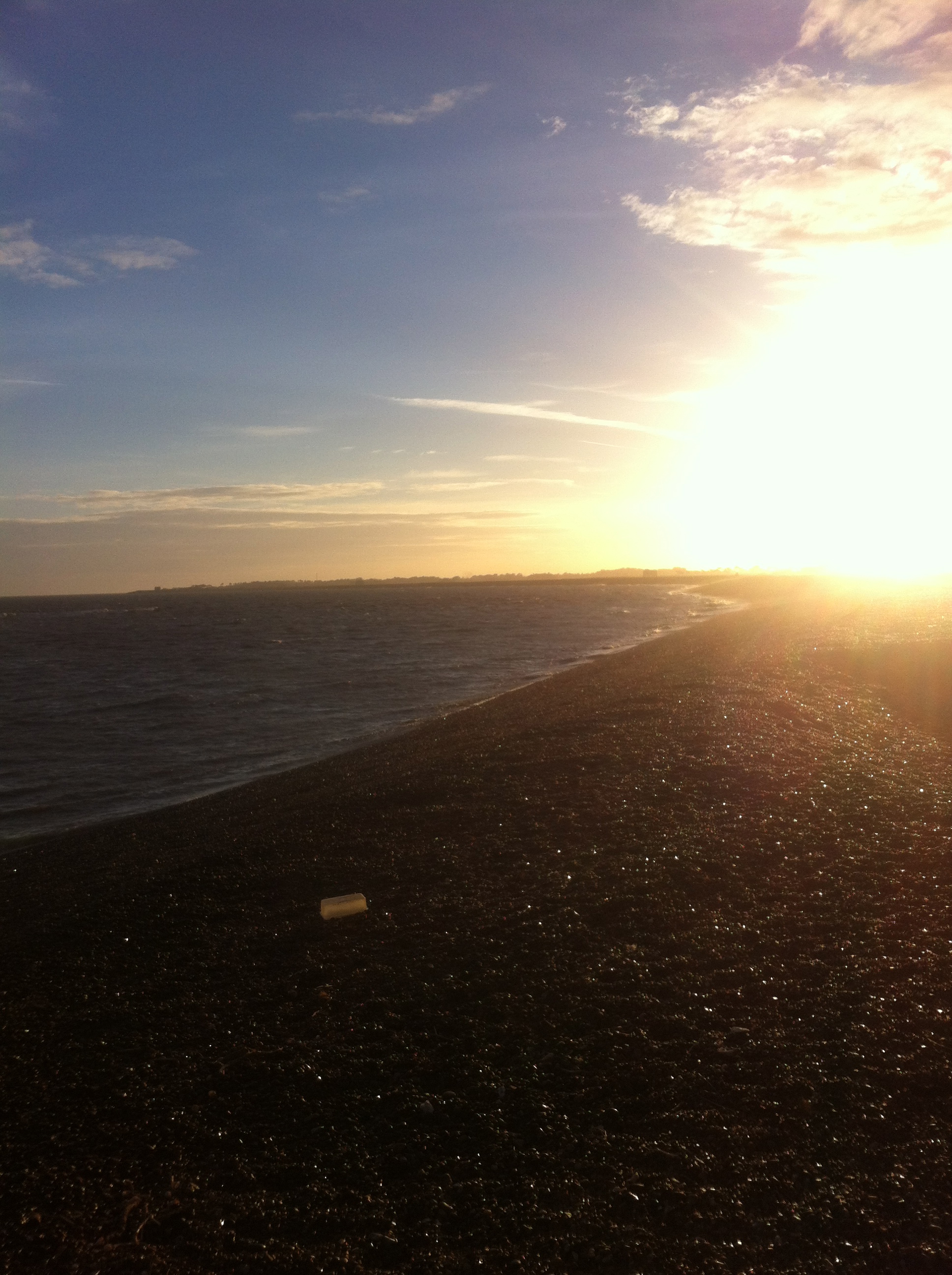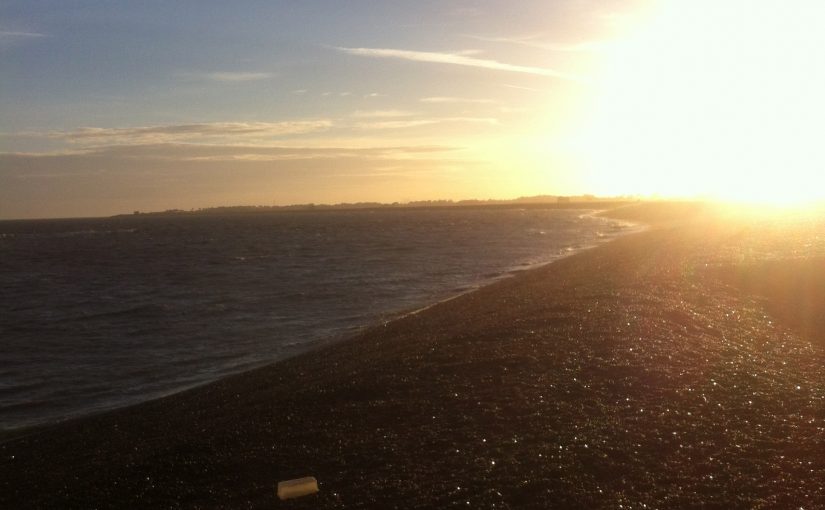
The story of Shingle Street has fascinated me for years. One man wrote three separate books about it, all proving to his satisfaction that nothing happened there. Or rather, that something didn’t happen there, the something being a German invasion repelled by fire in 1940.
Shingle Street strikes me as an unlikely place for a serious landing for a number of reasons, the biggest being that the nearest land across the Channel is 140 miles away. That’s a long way for any boat, even today, when it’s going to be shot at and harassed for the entire voyage by airplanes and any naval vessel going, At a respectable fifteen knots that’s still nine solid hours of sea crossing, a lot of it in daylight if the invasion was going to be in summer. And the logic continues; if the incoming invasion fleet couldn’t be harassed by the RAF or the Navy, then surely a shorter route would have been better anyway.
Apart from anything else, Shingle Street is exactly that. Shingle. Horrible stuff to walk on, let alone run and I would have thought almost useless as terrain for wheeled vehicles. Tanks might have an easier time of it, obviously.
The other issue is simply where it is: on a peninsula. Any glance at a map shows how easy it is to isolate the place. Once ashore the river Alde acts as a partial natural block to the north; both the Deben and the Orwell effectively block a breakout to the south. Not a half mile away a deep water course blocks egress to the nearest road. Crossed by a bridge, its guarded by a rare WW1 pill-box which though far from impregnable (like the even more rare 1940 two-man cast-iron pillbox in a hedge a few miles to the north) would have been an ideal place from which to blow the bridge.
And yet two things come to mind. A military friend told me about the importance of Caen to the Allies in 1944, as important as Antwerp, simply because if you need to get men and vehicles and munitions ashore in big numbers quickly then the thing you need is a dock. Ipswich may have turned into the same heap of rubble Caen was reduced to if there had been a real invasion at Shingle Street. The other is that since Napoleon’s time, the military has clearly thought something was going to kick off on this lonely, isolated strand. There are not one or three or four but five Martello towers in a two-mile sentry line down to Bawdsey.
And Bawdsey was where the crucial Home Chain radar was tested and centred on, the sheds full of boffins that the Graf Zeppelin came and parked itself over for a while, back before the war for reasons that were, as Hunter Thompson used to say, never made clear. But I think we can guess they knew something was going on and wanted to make a point: that they knew. And that the last time there were Zeppelins over Suffolk people got killed.
But I still don’t know. I need to talk to someone in the army. If you know anyone who is and who wouldn’t mind being interviewed, get in touch.






